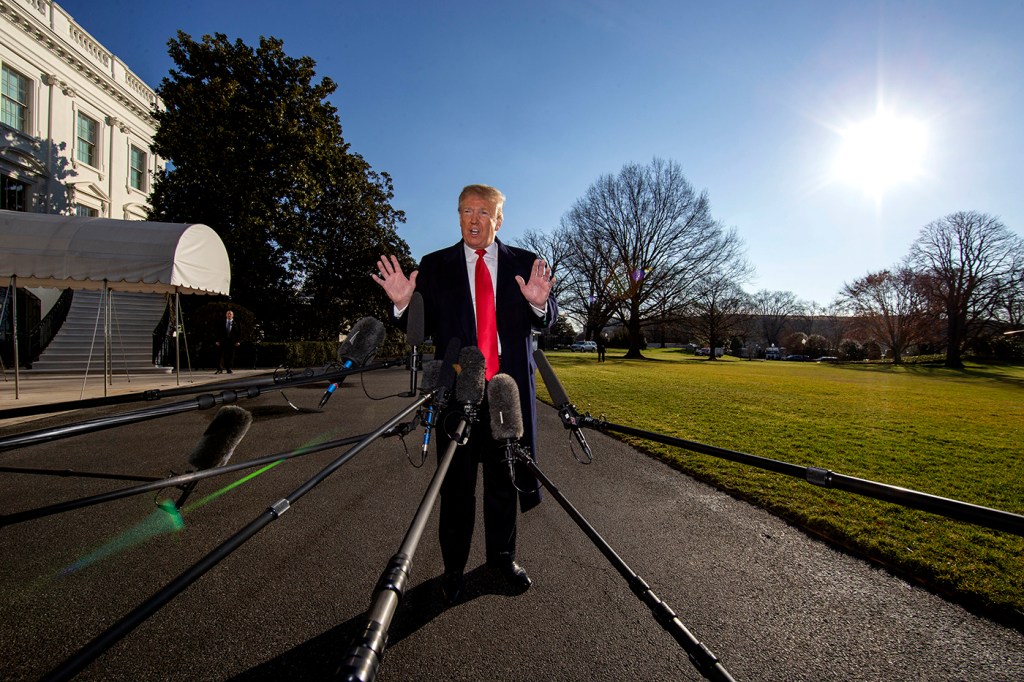Did TV networks make the right choice to air Trump’s live border wall address?

The major television networks in the United States made the right decision to air President Donald J. Trump’s prime time address on border security on Tuesday night, according to Dan Kennedy, a media critic and associate professor of journalism at Northeastern University.
The networks that carried the address began to debate whether they should air Trump’s speech shortly after the president announced his intention to deliver an address on Twitter on Monday afternoon. The White House requested air time for the speech, as is customary in the relationship between a president and the press.
Trump’s address, which marked his first live remarks from the Oval Office, came in the midst of a partial government shutdown that hinges on his demand for $5.7 billion to fund a wall at the country’s southern border. As a stalemate between Congress and the president continues, Trump has considered using national emergency powers to declare a crisis at the border in order to build a wall without the approval of lawmakers.
In his address Tuesday night, Trump declared a “growing humanitarian and security crisis at our southern border.” It was the potential for Trump to declare a crisis, coupled with the fact that his remarks would come as the result of his first request for airtime, that made it “almost unheard-of for the networks not to go along with that,” Kennedy said.
“We have all the reason in the world to say Trump is not a normal president,” he added, “ but it seems to me that this is a case where you have to treat him as one.”
News executives were forced to consider whether Trump’s record of issuing misleading or otherwise false information disqualified him from making a case for a border wall in a live speech from the Oval Office, Kennedy said.
Journalists weighed in on the debate online.
The CNN reporter Brian Stelter wrote, “My social media feeds have been full of commenters saying that TV networks should not air an address that’s likely to be filled with falsehoods and fear-mongering.”
Kennedy said that Trump’s likability would not have been a good reason to prevent him from making his first live speech from the Oval Office.
“I think we have to avoid getting into this situation where we’re not going to let [Trump] give a televised speech for really no reason beyond the idea that a lot of people don’t like him,” he said.
There is some precedent for networks declining to air a live presidential address: In 2014, several major networks declined to carry President Barack Obama’s address about immigration. But Kennedy said the situations are very different.
Obama’s White House never formally asked for air time for that particular address, Kennedy said, and it followed many other prime time addresses by Obama that were carried live.
Rather than refusing to air Trump’s address, Kennedy said, networks should be prepared to fact-check the president’s statements live. Many news outlets, including The New York Times, The Washington Post, and CBS News, did fact-check his remarks in real time.
House Speaker Nancy Pelosi and Senate Minority Leader Chuck Schumer were given equal airtime to respond to his remarks, which they requested in a joint statement issued Monday. Kennedy agreed with that decision as well.
“In this case, because the reason that the president wants to give this speech is so blatantly partisan, it makes sense to give the Democrats a chance to respond,” he said.
For media inquiries, please contact Shannon Nargi at s.nargi@northeastern.edu





